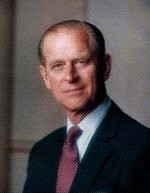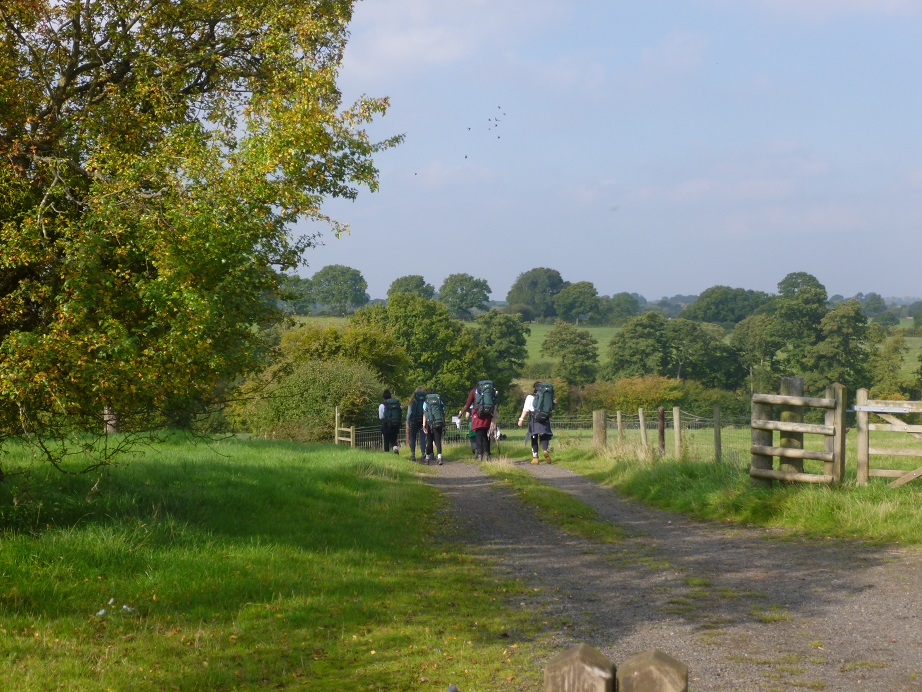The Duke of Edinburgh's Award

Our patron, His Royal Highness The Duke of Edinburgh KG KT
 Born in Corfu on 10 June 1921, Prince Philip attended Cheam Preparatory School before joining Gordonstoun School (after a short spell at Salem School in Germany) where he became Head Boy and captained the cricket and hockey teams.
Born in Corfu on 10 June 1921, Prince Philip attended Cheam Preparatory School before joining Gordonstoun School (after a short spell at Salem School in Germany) where he became Head Boy and captained the cricket and hockey teams.
Introduction by HRH The Duke of Edinburgh
Young people growing up in this modern complicated world have many difficulties to face, and opportunities for personal achievement are often limited. At the same time, parents, teachers, voluntary organisation leaders and employers, who recognise their responsibilities towards young people, also have their problems. This scheme is intended to help both the young as well as those who are concerned for their welfare.
The object is to provide an introduction to worthwhile leisure activities and voluntary service; as a challenge to the individual to discover the satisfaction of achievement and as a guide for those people and organisations who would like to encourage the development of their younger fellow citizens. I hope that all those who take part in this scheme will find an added purpose and pleasure in their lives. I am quite sure that all those who help to run it will gain that special sense of satisfaction which comes from helping others to discover hidden abilities and to overcome a challenge.
The Award website has all the information parents, pupils and teachers need in order to understand exactly what the Award is and how it works. Please take some time to look at it: http://www.dofe.org/
 |
When your child goes for their Award they'll develop the skills and attitudes they need to become more rounded, confident adults: qualities that colleges, universities and employers are attracted to. So when you put your backing behind your child's pursuit of a Duke of Edinburgh's Award, you’re investing in valuable skills and setting the tone for a lifetime of achievement.
Our Mission
To inspire, guide and support young people in their self-development and recognise their achievements.
A DofE programme is a personal challenge and not a competition against others. Every participant’s programme is tailor-made to reflect their individual starting point, abilities and interests.
A Duke of Edinburgh’s Award is achievable by any young person who chooses to take up its challenge, regardless of ability, gender, background or location.
Whilst DofE programmes may be offered within school, college, work time, custody or extra-curricular activity, young people choose to do a programme and commit some of their free time to undertake their activities.
A DofE programme inspires personal and social development. The value to young people is dependent on personal commitment, the learning process and the quality of the experience.
Young people design their own programme, which can be tailored to suit their personal circumstances, choices and local provision. They start at whichever level suits them best and they can take as long as they wish (within the age limits) to achieve an Award.
Our aim is to ensure that participants experience development of the whole person; mind, body and soul. By undertaking activities focusing on at least four different aspects of development, young people complete a balanced and wide-ranging programme.
At each level of engagement, a DofE programme demands progressively more time, commitment and responsibility from the participant.
Before starting an activity, young people are encouraged to set their own challenging goals. If they aim for these goals and show improvement they will achieve a Duke of Edinburgh’s Award.
A DofE programme demands persistence and commitment and cannot be completed with a short burst of enthusiasm. Participants are encouraged to continue with activities and to maintain their interest beyond their programme requirements.
Young people and Leaders should find participation enjoyable, fulfilling and rewarding.
You'll see all kinds of new talents bloom in your child as they achieve their Award including:
- Self-belief
- Self-confidence
- A sense of identity
- Initiative
- A sense of responsibility
- A real awareness of their strengths
- New talents and abilities
- The ability to plan and use time
- The ability to learn from and give to others in the community
- New friendships
- Problem solving, presentation and communication skills
- Leadership and team working skills
There are three levels:
Pupils can start at any level as long as they are old enough. You have until your 25th birthday to complete any of the Awards but it takes at least 6 months at Bronze, 12 months at Silver and 18 months at Gold for Direct Entrants.
Bronze Award (14+ Years)
|
Volunteering
|
Skills
|
Physical
|
Expedition
|
|
3 Months
|
3 Months
|
3 Months
|
Plan, train for and complete a 2 day, 1 night expedition
|
All participants must undertake a further 3 months in the Volunteering, Skills or Physical section.
|
Volunteering
|
Skills
|
Physical
|
Expedition
|
|
6 Months
|
One section for 6 months and the other section for 3 months
|
Plan, train for and complete a 3 day, 2 night expedition
|
|
Direct entrants must undertake a further 6 months in the Volunteering or the longer of the Skills / Physical section.
|
Volunteering
|
Skills
|
Physical
|
Expedition
|
Residential
|
|
12 Months
|
One section for 12 months and the other section for 6 months
|
Plan, train for and complete a 4 day, 3 night expedition
|
Undertake a shared activity in a residential setting away from home for 5 days and 4 nights
|
|
Direct entrants must undertake a further 6 months in either the Volunteering or the longer of the Skills or Physical sections.
There are four sections:
- Volunteering: undertaking service to individuals or the community
- Physical: improving in an area of sport, dance or fitness activities
- Skills: developing practical and social skills and personal interests
- Expedition: planning, training for and completion of an adventurous journey in the UK.

